If your cat managed to ingest toothpaste made for humans, not pets, you should take them to the animal hospital as soon as possible.
Many ingredients in toothpaste are toxic to cats, so they require immediate veterinary assistance.
Contents
Why Toothpaste Is Dangerous To Cats
It Contains Xylitol
Not all toothpaste varieties contain this artificial sweetener, but there are many these days that do have it listed on the label.
Xylitol is one of the most common artificial sweeteners currently used by manufacturers in an attempt to lower the number of calories that their products might have.
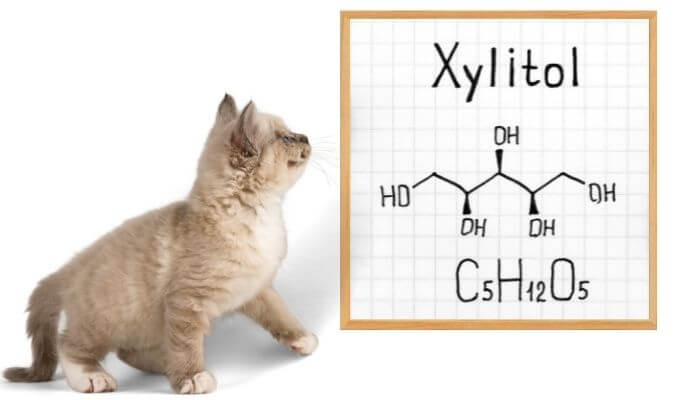
However, even though for people, low amounts of xylitol, sorbitol, and other such substances are effectively harmless, especially in the short run, that cannot be said for cats.
Enough studies attesting the toxicity of xylitol for this species do not exist. The most recent one is called Effects of p.o. (per os) administered xylitol in cats and was published in 2018.
The cats that were a part of that study did not experience any significant adverse effects in either their haematological or biochemical markers.
Even though there were only six cats examined for the scientific paper, it wouldn’t be incorrect to assume that xylitol is fairly harmless to cats compared to how it is for dogs.
Even so, like any other artificial sweetener, xylitol can have long-term negative effects on a cat’s health.
There is quite a fair share of studies that show that some of these substances can cause cancer with consistent use.
And while cats might not experience a spike in their blood sugar level after ingesting xylitol — as their canine counterparts do — they can definitely experience some unpleasant symptoms such as digestive distress and even liver damage.
It Contains Fluoride
Fluoride is extremely toxic to cats.
The reason it’s so dangerous is that there are quite high amounts of fluoride present in human toothpaste, and cats are not supposed to have that much.
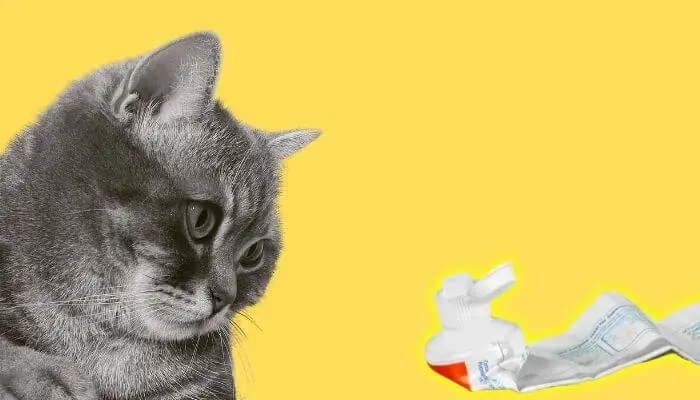
But cats can develop fluoride toxicity not only after having ingested toothpaste but also other products such as foods that have been contaminated with pesticides or rat poison (which they can accidentally ingest when killing or eating small rodents).
If your cat does ingest toothpaste, the best thing for you to do would be to take her to the vet clinic right away.
Ask a Vet
The vet might be able to perform gastric lavage and remove the digestive contents before the ingredients are absorbed into the pet’s bloodstream.
If this doesn’t work, they can administer calcium gluconate or other fluoride binders so as to prevent poisoning.
The symptoms of fluoride toxicity in cats are the following:
- Diarrhoea
- Vomiting
- Heavy breathing
- Restlessness
- Increased cardiac rhythm
- Excessive salivation
- Depression/lethargy
Could Eating Toothpaste Kill My Cat?
It depends on two factors.
The first is just how much your cat manages to ingest since the amount of fluoride in the product could indeed be lethal.
The second would be whether or not your pet gets medical assistance soon or not. If this happens, chances are that the cat will recover, especially if they are otherwise a completely healthy adult.
Eating toothpaste can be more dangerous for certain vulnerable cat categories such as kittens and seniors, the second being more likely to experience quite severe symptoms since they have chronic diseases.
How Much Toothpaste Is A Dangerous Amount?
Even the lowest amounts can be risky for cats.
The reason for this is that there are other risky ingredients in toothpaste, all of which can cause unpleasant symptoms, and we don’t just mean fluoride and xylitol.
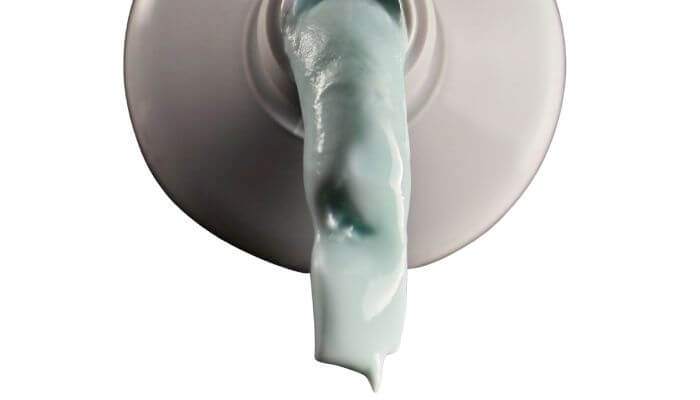
Most toothpaste varieties contain menthol or artificial flavouring that’s extremely potent, and that makes it possible for people to have fresh breath for a while after cleaning their teeth.
Cats are extremely sensitive to these substances, and that is also why they might actually not even try to eat toothpaste on their own.
The instances where these accidents can happen are actually those that involve kids, for example, or someone giving cats toothpaste out of fun or as a silly experiment.
But it can make cats feel extremely uncomfortable, they can foam at the mouth, and they can hide away, so you might not even be able to take them to the vet.
What To Do If Your Cat Has Eaten Toothpaste?
Take them to the vet clinic as soon as possible.
Time is of the essence when it comes to fluoride poisoning, so you should get to the animal hospital in less than 30 minutes after realising that your cat ingested toothpaste.
The vet has access to the right type of therapy and tools to prevent a more severe outcome.
Human Toothpaste Alternatives For Cats
It’s normal for you to be concerned about your cat’s oral health, and that’s because it is important.
Cats with bad teeth and gum health have a much higher chance of developing cardiac pathologies when they grow older.
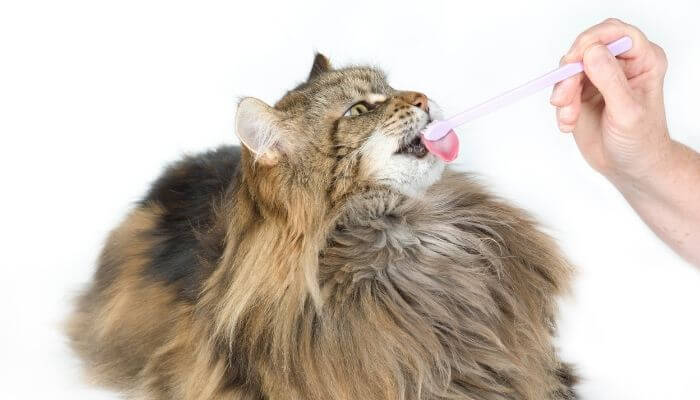
While periodontal disease is less common in cats compared to dogs, it can still affect them, so it is your responsibility to brush your cat’s teeth every 2-3 days (if not daily).
But cats don’t like the feeling or the taste of minty toothpaste, so get a cat-appropriate product. `
Several examples of safe toothpastes for cats are the following:
- Virbac Enzymatic Toothpaste for Cats (Yummy Fish Flavour)
- ICF Stomodine F Cat & Dog Toothpaste Gel (Meat Flavour)
- PetSol Dental Care Kit
None of these products contains either xylitol or high amounts of fluoride, and more importantly, they are not flavoured in a way that will put cats off.
That means that you will have less of a hard time convincing your cat to put up with their oral hygiene routine.
You can also use a water additive (commonly marketed as ‘mouthwash’) that can be added to your cat’s drinking water.
These products usually lower the chance of the cat developing plaque and tartar very quickly. Some are also available in their powder form, which you can sprinkle on your cat’s dry or wet food, such as the ProDen PlaqueOff Cat Powder for Bad Breath & Tartar.
Why Does My Cat Eat Toothpaste?
Cats are not usually attracted to the smell or taste of human toothpaste, and that’s because it tends to be very pungent.
But there are exceptions to the rule, and cats have different personalities and preferences, so some might actually enjoy a bit of minty delight.
Giving your cat products like catnip or even dried mint is, in fact, safer than allowing them to eat toothpaste.
If you have no other way of going about things, just close the door to your bathroom whenever you brush your teeth.
Even if your cat protests by vocalising, at least you’re not putting their health in danger.
As an Amazon Associate I may earn a small fee from qualifying purchases at no extra cost to you. This helps us run the site, so thanks for your support!

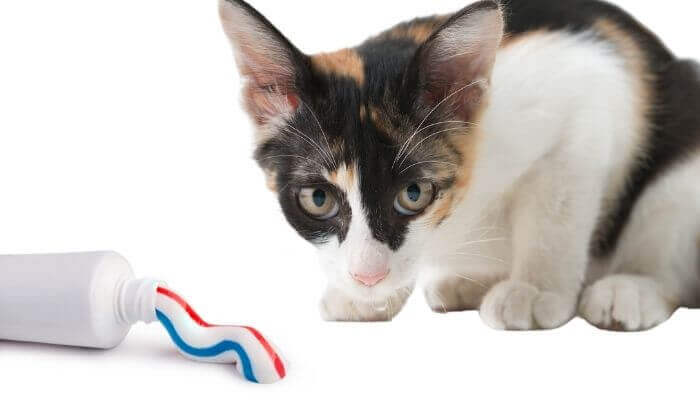
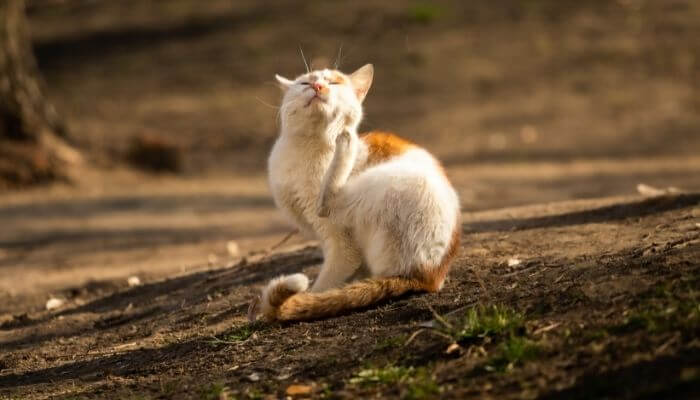
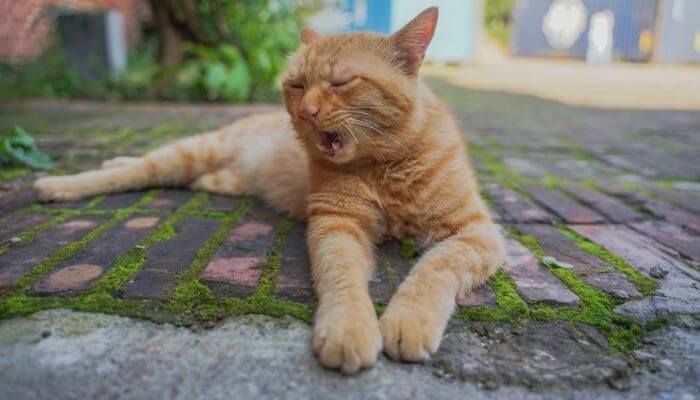
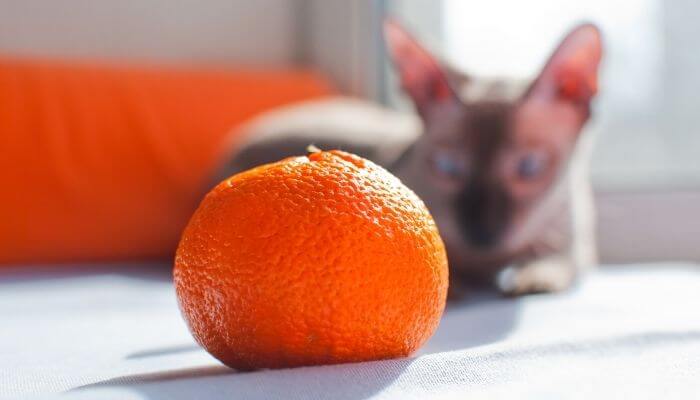
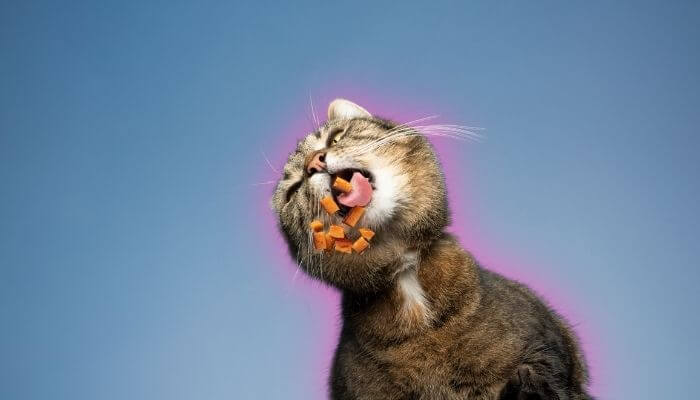
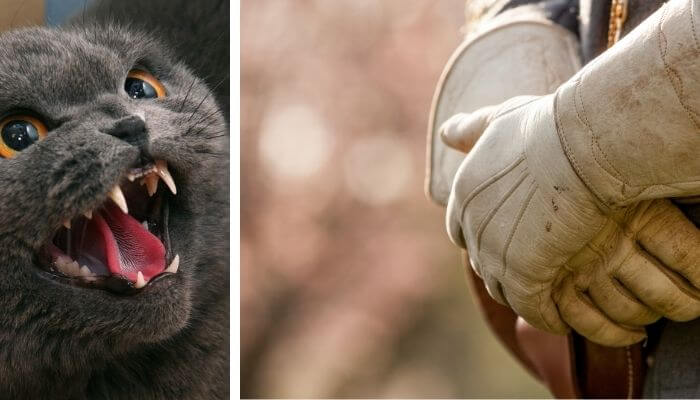

Leave a Comment